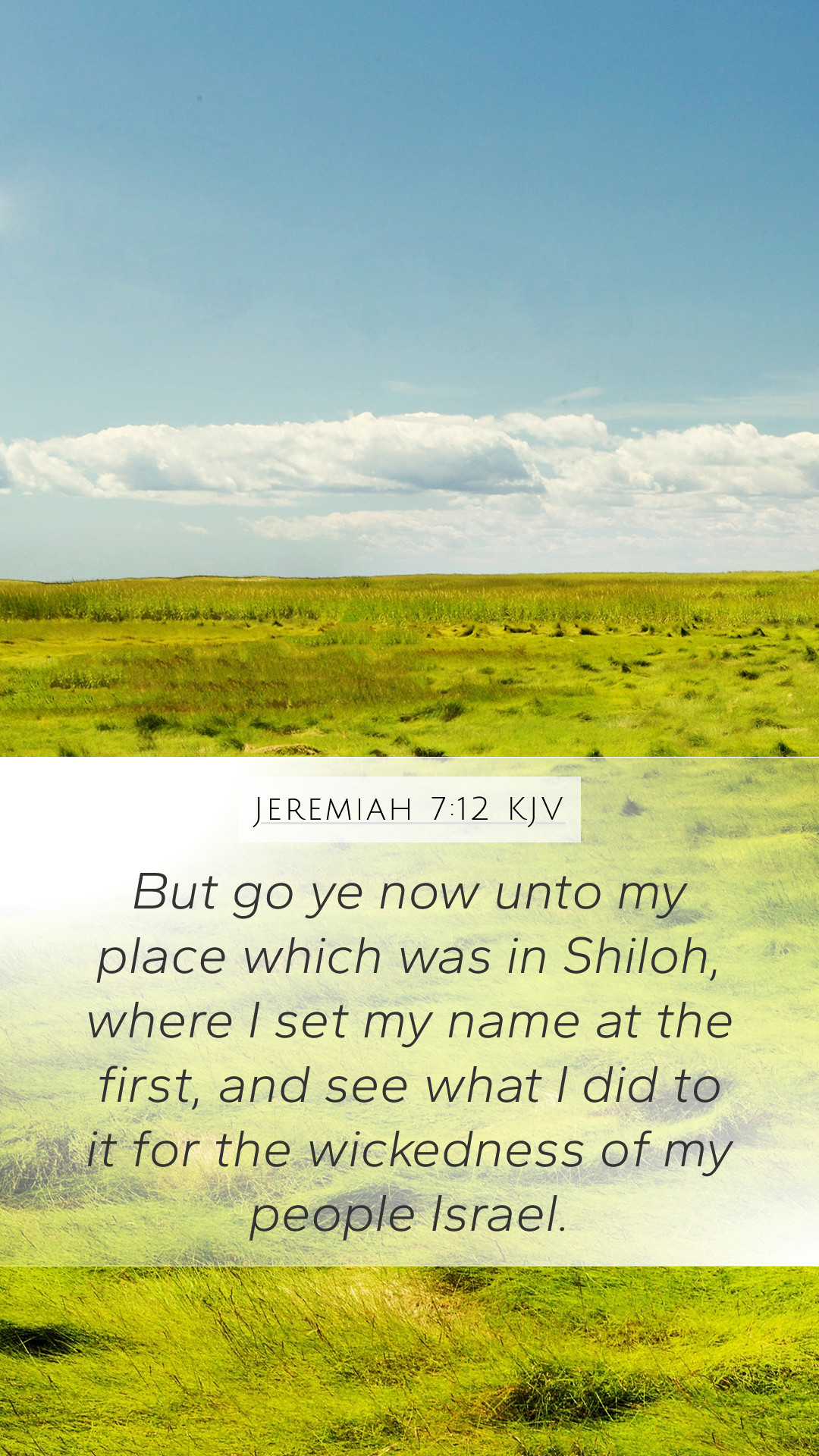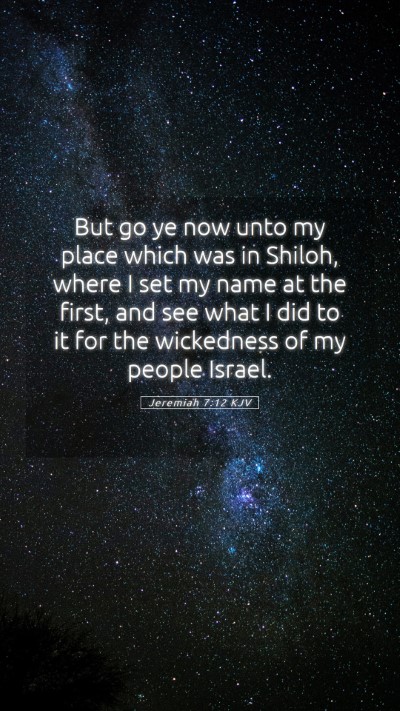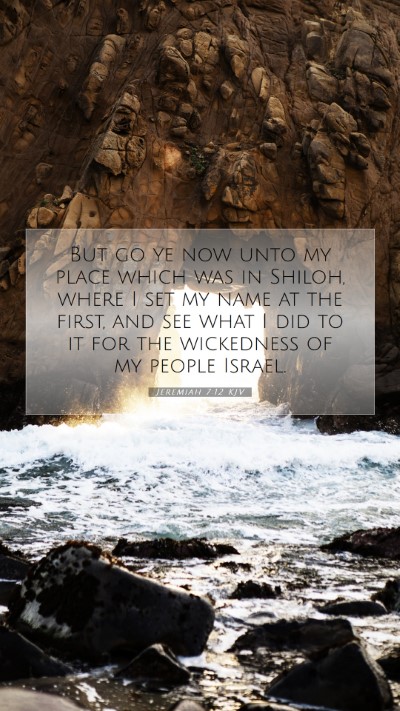Bible Verse Meaning: Jeremiah 7:12
In Jeremiah 7:12, the Lord calls upon His people to reflect on the past and consider the lessons learned from their ancestors. This verse serves as an important reminder of the significance of historical context and spiritual understanding within scripture. Below are insights derived from prominent public domain commentaries regarding this pivotal verse.
Scripture Context
To fully grasp the meaning of Jeremiah 7:12, it is crucial to consider its context within the Book of Jeremiah. The prophet Jeremiah speaks during a tumultuous time for Judah, addressing how the people have turned away from true worship of God. Jeremiah's message warns against the consequences of idolatry and misplaced trust in religious rituals.
Verse Interpretation
Jeremiah 7:12 reads as follows:
"But go ye now unto my place which was in Shiloh, where I set my name at the first, and see what I did to it for the wickedness of my people Israel."
-
Matthew Henry's Commentary:
Henry emphasizes the Lord's call to remember Shiloh, the first place where God’s name was honored among His people. He points out that Shiloh’s desolation characterizes the fate of the wicked. This highlights the importance of genuine worship and obedience to God, contrasting with the empty rituals practiced by the people of Judah.
-
Albert Barnes' Notes:
Barnes notes that Shiloh was once a center of worship and divine presence. Its destruction serves as a warning to the people of Judah, illustrating that God will not tolerate their iniquities. He explains that God’s judgment is not arbitrary but stems from His holiness and justice.
-
Adam Clarke's Commentary:
Clarke discusses the historical significance of Shiloh, noting that it was chosen by God. He contrasts the current state of Judah with Shiloh’s ruin, which was a result of Israel’s unfaithfulness. This serves as a poignant reminder that disobedience leads to divine judgment.
Understanding the Historical Context
Understanding the historical context is essential when interpreting this verse. Shiloh was established as a religious center before the temple was built in Jerusalem. The mention of Shiloh drives home the point that God's presence has been withdrawn due to the people's sinfulness, emphasizing that physical locations of worship do not guarantee divine favor when the heart is corrupted.
Application to Daily Life
The application of Jeremiah 7:12 in today's context encourages believers to examine their own lives and the places where they seek to worship. Is it genuinely honoring to God, or merely a facade? The admonition is to seek authentic worship and a heartfelt relationship with God.
Cross References
- 1 Samuel 4:21-22: Discusses the departure of God's glory from Israel.
- Psalm 78:60: Refers to God's rejection of Shiloh.
- Amos 5:5: Warns about the futility of seeking God in places where He is not honored.
Conclusion
This exploration of Jeremiah 7:12 through the lens of public domain commentaries reveals not only the historical and prophetic significance of the verse, but also its relevance to contemporary spiritual life. By understanding scripture through thorough analysis and engaging with classic commentaries, we gain deeper insights into Bible verse meanings and can apply them more effectively to our lives.


